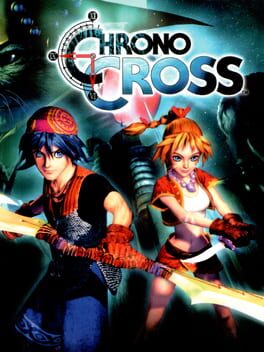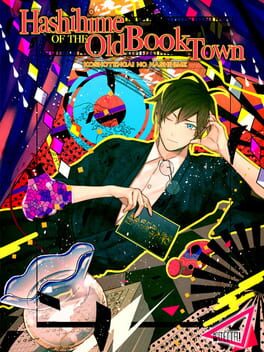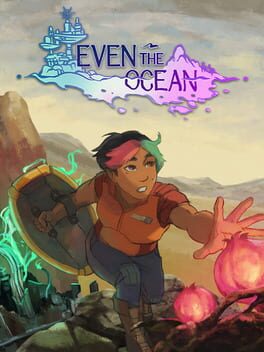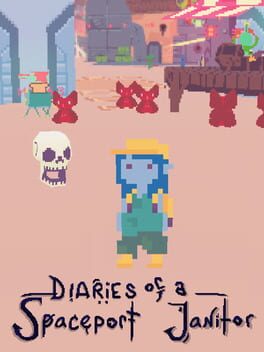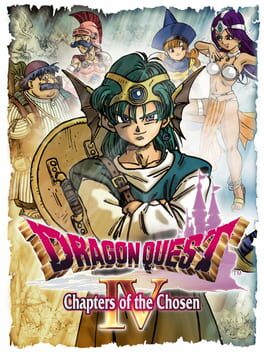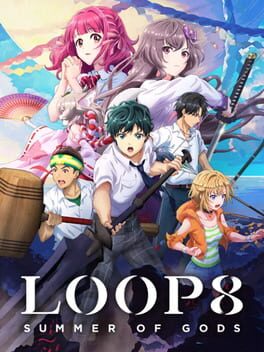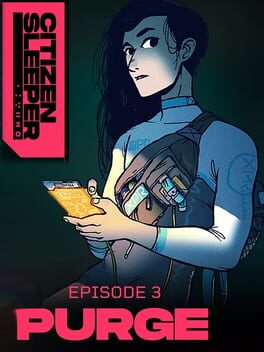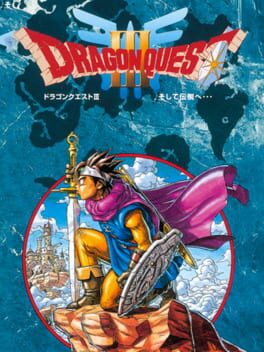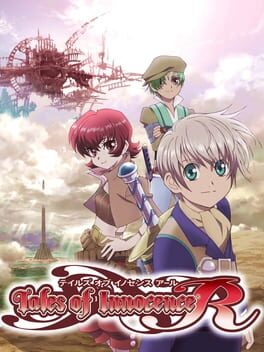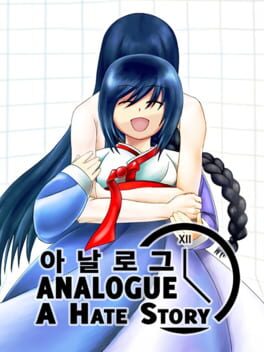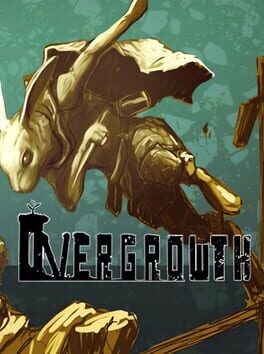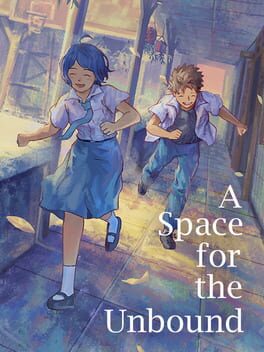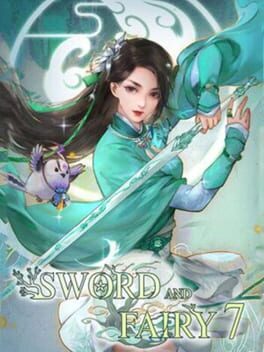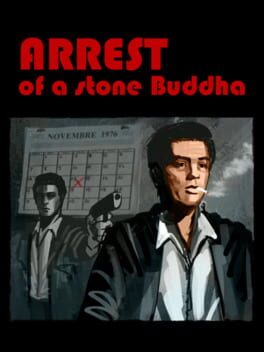wingXblade
1999
CWs for Chrono Cross: child abuse, sexual harassment, burning alive, mind control.
Maybe the boldest and most tender RPG produced at Square pre- and post-merger, Chrono Cross is a pastoral re-phrasing of Chrono Trigger's thesis on the will of the individual. Where Trigger gives you buckets of endings to fulfil the endless possibility of time travel and the player's will as represented by our avatar Crono, Chrono Cross says you must live in society. Every day may feel like you're working with systems beyond your individual control which you don't yet understand, but the people you surround yourself with, how you order the tasks set before you, and who you share collective memory with create a bold and irreplaceable picture of life. Simply designing a vibrant world and filling it with life in animation and visionary approaches to pre-rendered backgrounds grants Chrono Cross a precious vitality I've always wished could poke through in Trigger.
The combat system is a little dinky and it's unbelievable that this game still runs like dog shit on its modern ports, but most video games to this day wish they could land their fantasy allegory for modern society like this game does so effortlessly. There's not really that much nuance because it just doesn't need it! Living in society has boundaries and structures that can hurt and help us and it's in our power to band together and do something about the ones that harm, send tweet.
Maybe the boldest and most tender RPG produced at Square pre- and post-merger, Chrono Cross is a pastoral re-phrasing of Chrono Trigger's thesis on the will of the individual. Where Trigger gives you buckets of endings to fulfil the endless possibility of time travel and the player's will as represented by our avatar Crono, Chrono Cross says you must live in society. Every day may feel like you're working with systems beyond your individual control which you don't yet understand, but the people you surround yourself with, how you order the tasks set before you, and who you share collective memory with create a bold and irreplaceable picture of life. Simply designing a vibrant world and filling it with life in animation and visionary approaches to pre-rendered backgrounds grants Chrono Cross a precious vitality I've always wished could poke through in Trigger.
The combat system is a little dinky and it's unbelievable that this game still runs like dog shit on its modern ports, but most video games to this day wish they could land their fantasy allegory for modern society like this game does so effortlessly. There's not really that much nuance because it just doesn't need it! Living in society has boundaries and structures that can hurt and help us and it's in our power to band together and do something about the ones that harm, send tweet.
CWs for Hashihime of the Old Book Town: graphic sexual assault, abuse, pedophilia, beheading, graphic violence, body horror.
I've had a really hard time assembling my thoughts on this one! Hashihime of the Old Book Town has some odd edges for being a Taisho period piece with not too much to say about the era in terms of global military movement, but it's often completely secondary to the moment-to-moment. But then I find myself very lost trying to piece together what that moment-to-moment is: something about delusions, having expectations for your life, career aspirations that muddy your connection to reality and your loved ones, or a poisonous obsession with the past. Something really provoking occurs when it's all happening at once, the modest period piece lounge jazz-y score, the anachronistic super flat CGs, and the drab cityscapes in the rain, but I think it still ends up somewhere very simplistic in the way that romance tends to. There's maybe a larger statement being made through the heavy reference to Yumeno's Dogra Magra that I'm completely missing, but that's where I'm at! This is a very fun game with a lot of fantastic revision to the middle era of BL VN where it's just normal about the BL stuff up to a certain point. I wish the routes were a bit more even or maybe in a different order, but I can't wait to hit more from Adelta.
I've had a really hard time assembling my thoughts on this one! Hashihime of the Old Book Town has some odd edges for being a Taisho period piece with not too much to say about the era in terms of global military movement, but it's often completely secondary to the moment-to-moment. But then I find myself very lost trying to piece together what that moment-to-moment is: something about delusions, having expectations for your life, career aspirations that muddy your connection to reality and your loved ones, or a poisonous obsession with the past. Something really provoking occurs when it's all happening at once, the modest period piece lounge jazz-y score, the anachronistic super flat CGs, and the drab cityscapes in the rain, but I think it still ends up somewhere very simplistic in the way that romance tends to. There's maybe a larger statement being made through the heavy reference to Yumeno's Dogra Magra that I'm completely missing, but that's where I'm at! This is a very fun game with a lot of fantastic revision to the middle era of BL VN where it's just normal about the BL stuff up to a certain point. I wish the routes were a bit more even or maybe in a different order, but I can't wait to hit more from Adelta.
2016
A flagship to all those games that want to talk about work outside the sim genre, Even the Ocean is a methodical puzzle-platformer essay on how the mundane and crisis moments of the individual and society shape one another. Fantasy electrician labor is made into an independent state Uber model (why is every indie game about labor like this), your coworker dies gruesomely the first day on the job, and you persist against all odds. Aliph has a loose metropolitan society and no proper coworkers to inform how they should react to being left for dead and silently accepts the hero's accolades along with being wrung out for more deadly work outside the job description. I really dislike the moments trying to bespoke about its fantasy elements because obviously I know that Shinra is evil and that I should not destroy the giant stone wardens of the planet, but our hero-electrician's plain acceptance of the clearly evil work is a really great vehicle for refrained the disaster tourism of video game levels. The game is functionally paced by having to clock in and out of work before levels. Along with a little breakfast stand that dots the way to work, a very small touch is all Even the Ocean needs to pull out mixed drudgery of life with wage labor. The NPCs speak as if they've been gutted of something precious at a spiritual and social level while the fantastical elements of the world are trying to yank a hero does not exist within Aliph. I'm pretty down on the narrative and thematic bow tying that gets dropped suddenly at the end, but I generally enjoy the way the game culminates and the sensations delivers on the way there.
CWs for Memories of a Spaceport Janitor: bodily fluids, harassment, transphobia.
A deeply unfocused, dispassionate, and not very carefully tuned container for the weird liberal middle-class imagination of a distinctly working class job. I'm theoretically into the core loop and really a big fan of how consistently disorienting the city is, but it's in too loose of a frame and ends up stumbling where decades of sims have already produced so many models for designing day-to-day minutia. The scaling of numbers and the general cost of life is baffling given the dice roll to figure out your daily piece-wage and doubly so when you realize that there's just no rent due for some reason. I have a bit of sympathy for this game because I really did otherwise enjoy bopping around the city, but it holds a really nefarious and delirium inducing bootstrap moralizing directed at an individual in an abstraction of our own society that's way too fucking stinky.
A deeply unfocused, dispassionate, and not very carefully tuned container for the weird liberal middle-class imagination of a distinctly working class job. I'm theoretically into the core loop and really a big fan of how consistently disorienting the city is, but it's in too loose of a frame and ends up stumbling where decades of sims have already produced so many models for designing day-to-day minutia. The scaling of numbers and the general cost of life is baffling given the dice roll to figure out your daily piece-wage and doubly so when you realize that there's just no rent due for some reason. I have a bit of sympathy for this game because I really did otherwise enjoy bopping around the city, but it holds a really nefarious and delirium inducing bootstrap moralizing directed at an individual in an abstraction of our own society that's way too fucking stinky.
The first proper characters in Dragon Quest and they're all very very cute. While the distribution of towns and grinding across the chapters is very uneven, DQ4 manages to clearly declare its territory within larger game scripts by extending the charm of the franchise without ever stumblinh. The cast is a charming spread of personalities brought to life by interesting pre-built packages of DQ3 classes. It is especially impressive the way this game handles women who just exist and have motivations when FF4 comes out like a year later only offering damsel wife lady and cursed daughter girl. I think there's a lot of ways this game is trapped under the weight of DQ3, largely in how restrictive party compositions can feel because of the pre-builds and the unecessary lack of villain scenes with Psaro coming from the insistence to not pull the camera away from the player. Still, it's a breezy time despite being a little larger than the proceeding entries, lately in thanks to a better paced gear advancement. God bless my girly girl party that I took all the way to Psaro and no further because I still do not like DQ post-game content.
CWs for Loop8: Summer of Gods: pedophilia, mind control, partner abuse,
loop8 is a spacious and dreary dating sim about scattered memories and people who have been othered from society where also all the men are bisexual. It is a sobering affair, often dealing out character events without ceremony and certainly without any UI feedback. The world situation is ever so slowly revealed to you in fragments by unreliable characters, unlogged anywhere other than your own memory. I think the measured drip of events in-between selecting the more abstract relationship building dialogue options is really breathtaking for both the pace of more prominent scenes handed out and the kind of re-contextualizing done with the stock remix characters. If you're not privy to Japanese creation mythology like myself, you might feel like you're missing out on some core allegory the game is doing but tbh it seems a little uninspired from what I can glean. Combat is simple and works well to feel more like a cutscene where the fruit of your day-to-day planning is reaped and fucking owning you if you need your schedule making prowess checked. The overworld is extremely crummy in the way that these sim hybrid games tend to be, but each area is so small that it barely matters when Terasu clips through the restaurant.
The game, however, often feels like it doesn't quite have the polish to support its core looping mechanic or normal successive playthroughs. The fast-forward is absolute dogshit and combat feels a little drawn out even at nearly maxed stats. It sounds small but both are hugely burdensome and can really sour a loop or your run to get another character's epilogue. The ending system/structure itself feels really arcane and too unspecial to me still, but a little crud and experimentation when you're going for the other endings feels more like an unsolved issue in the genre that I don't necessarily want to take this game to task for individually. I think this game is pretty great if you have the palette for actual dating sims. I really strongly wish a number of characters were conceived of with platonic non-date conversation options, but it's easy enough to just avoid these and pretend like they're not there as they feel like marketing obligations which live outside the emotional core and sentiment of the game. I will be continuing to play to at least get Saru's epilogue, but I wanted to hop on here and set the record straight for people who have understandably uninformed, unrealistic, or ahistorical expectations for this game as an RPG.
loop8 is a spacious and dreary dating sim about scattered memories and people who have been othered from society where also all the men are bisexual. It is a sobering affair, often dealing out character events without ceremony and certainly without any UI feedback. The world situation is ever so slowly revealed to you in fragments by unreliable characters, unlogged anywhere other than your own memory. I think the measured drip of events in-between selecting the more abstract relationship building dialogue options is really breathtaking for both the pace of more prominent scenes handed out and the kind of re-contextualizing done with the stock remix characters. If you're not privy to Japanese creation mythology like myself, you might feel like you're missing out on some core allegory the game is doing but tbh it seems a little uninspired from what I can glean. Combat is simple and works well to feel more like a cutscene where the fruit of your day-to-day planning is reaped and fucking owning you if you need your schedule making prowess checked. The overworld is extremely crummy in the way that these sim hybrid games tend to be, but each area is so small that it barely matters when Terasu clips through the restaurant.
The game, however, often feels like it doesn't quite have the polish to support its core looping mechanic or normal successive playthroughs. The fast-forward is absolute dogshit and combat feels a little drawn out even at nearly maxed stats. It sounds small but both are hugely burdensome and can really sour a loop or your run to get another character's epilogue. The ending system/structure itself feels really arcane and too unspecial to me still, but a little crud and experimentation when you're going for the other endings feels more like an unsolved issue in the genre that I don't necessarily want to take this game to task for individually. I think this game is pretty great if you have the palette for actual dating sims. I really strongly wish a number of characters were conceived of with platonic non-date conversation options, but it's easy enough to just avoid these and pretend like they're not there as they feel like marketing obligations which live outside the emotional core and sentiment of the game. I will be continuing to play to at least get Saru's epilogue, but I wanted to hop on here and set the record straight for people who have understandably uninformed, unrealistic, or ahistorical expectations for this game as an RPG.
Citizen Sleeper goes out with a whimper, a slow pan of the whole Eye crawling into view while its spacious soundtrack plays out its last song. Maybe The Eye meant more to you than it did to me in this moment. The stacatto release of Citizen Sleeper's DLC has an obvious impulse to imbue The Eye with real time, like comics and television, but, without reimagining the core systems, the gap mostly highlights the games biggest faults. The character writing and navigation remains the strongest element, but it all drowns without any return onramp. The ease at which you can absolutely steam roll every DLC episode with zero preparation just feels like such a massive oversight. I understand that it's free DLC, but making updates is an opportunity to revise and edit. The endgame pre-DLC already had this issue and tacking more frictionless tasks on to my level 1000 Sleeper makes the most interesting ludo-narrative synthesis eat shit. Even playing along with the continued individualist cynicism that sours most of the endings or the character arc twists, Purge is a really pathetic end to an otherwise compelling imagination space of a game.
It continues to be very very humbling going back through this franchise. Not just this franchise but, it seems, all RPGs that descend from the philosophies and design ethics of Dragon Quest constantly remain in the orbit of this game. DQ3 takes the runaway phenomenon of the first two games and manages to make its closed-circuit adventure formula map to a much larger map. Chosing your party members within the job system provides ups and downs unique to your cast in the way any great job system should. The path through the world is delicately threaded with level checks carefully designed for the amount of grunt work you'll need to do to piece together your next steps. The echoes of your father's path and the repercussion of your own actions boom throughout the world as your team deals with your adventure strongly resembling the one that came before it. Dragon Quest 3 is a game about lineage and discovery in ways which I think wordier entries later in the series struggle to land. If you try to halfheartedly blaze through this with a guide or without optimizing your party, I could see a modern palette rubbing against the level checks, but I think this game is really an unavoidable and vital puzzle piece in the legacy of Video Games.
2012
CNs for Tales of Innocence R: child abuse, mind control, maiming, sui*, human experimentation, starvation, kidnapping.
Tales of Innocence R is a game with a smallness claimed by its title that often gets betrayed by remake-itis bringing uncreative adaptations and bloating in all the wrong places. The promise of a Tales that's primarily about how its cast relates to or copes with social expectations put upon them without a super burdensome fantasy pretense is exciting to me. Like many, I come to these games primarily for how much of the run time is spent emulating petty conversations while in transit to different set pieces. World and political table dressing which normally takes up so much of this franchise's interest falls to the side for simple emotional revelations made by the cast. There isn't anything impressive in terms of content or theme, but the amount of space between events is often really affecting in the way that grindy games can transform a single sentence or image multiple times. This carefulness is unfortunately not the norm and the game is frequently ruining its characters with bad remixes of the usual stock gags done without much thought and completely random grinding demands that negatively affect your sense of time passing.
I'd really love a middle ground between what the DS script size probably is and what we have here because I really do like the idea of a JRPG that only claims very brief character sketches rather completely fleshed out character arcs. I would just like a version of that where I liked the main cast anywhere near as much as the two random remake tie-in characters that I didn't even realize weren't in the original until credits!!! Thanks to life bottle for the fan translation and for the help actually applying the patch!
Tales of Innocence R is a game with a smallness claimed by its title that often gets betrayed by remake-itis bringing uncreative adaptations and bloating in all the wrong places. The promise of a Tales that's primarily about how its cast relates to or copes with social expectations put upon them without a super burdensome fantasy pretense is exciting to me. Like many, I come to these games primarily for how much of the run time is spent emulating petty conversations while in transit to different set pieces. World and political table dressing which normally takes up so much of this franchise's interest falls to the side for simple emotional revelations made by the cast. There isn't anything impressive in terms of content or theme, but the amount of space between events is often really affecting in the way that grindy games can transform a single sentence or image multiple times. This carefulness is unfortunately not the norm and the game is frequently ruining its characters with bad remixes of the usual stock gags done without much thought and completely random grinding demands that negatively affect your sense of time passing.
I'd really love a middle ground between what the DS script size probably is and what we have here because I really do like the idea of a JRPG that only claims very brief character sketches rather completely fleshed out character arcs. I would just like a version of that where I liked the main cast anywhere near as much as the two random remake tie-in characters that I didn't even realize weren't in the original until credits!!! Thanks to life bottle for the fan translation and for the help actually applying the patch!
CW for Analogue: A Hate Story: torture, sui*, spousal abuse, gaslighting, child death, incest, alcoholism
A weird echo of Digital: A Love Story with a really unfortunate and poorly researched attempt to make a feminist game that barely even reaches the capacity of second-wave feminism. I played this at launch and then replayed recently for KRITIQAL's game club. What this game expresses about when and why patriarchy exists or the fact that it's told in this strange grab bag of feudal Korean "Asian stuff" is bewildering to me now as it was then. The ratio of logs to character interactions makes the historical narrative, the characters themselves (why is there both a direct prompt system and a push notification thing?), and dramatic setup for the player character on the dead ship feel completely flat. The route split happens before there is any space for either character to make more sophisticated thoughts and arguments about the game's core moral dilemma and it feels like the game shoots a better or more concise thought before anything can take off. There's some exciting stuff here in the UI that I just like more over in Digital where I don't have to deal with this strange cynnical "aren't you completely compromised picking a girl in the game where there are only route choices centered around the women" thing here.
A weird echo of Digital: A Love Story with a really unfortunate and poorly researched attempt to make a feminist game that barely even reaches the capacity of second-wave feminism. I played this at launch and then replayed recently for KRITIQAL's game club. What this game expresses about when and why patriarchy exists or the fact that it's told in this strange grab bag of feudal Korean "Asian stuff" is bewildering to me now as it was then. The ratio of logs to character interactions makes the historical narrative, the characters themselves (why is there both a direct prompt system and a push notification thing?), and dramatic setup for the player character on the dead ship feel completely flat. The route split happens before there is any space for either character to make more sophisticated thoughts and arguments about the game's core moral dilemma and it feels like the game shoots a better or more concise thought before anything can take off. There's some exciting stuff here in the UI that I just like more over in Digital where I don't have to deal with this strange cynnical "aren't you completely compromised picking a girl in the game where there are only route choices centered around the women" thing here.
2017
CWs for Overgrowth: graphic animal death, blood, falling from great heights, depictions of pre-feudal slavery
I am aware of this game's development cycle and would like to speak charitably about it, but Overgrowth is a game where I continuously struggle to find such a through-line. There is an interesting FFXV-like action game input system that is robbed of any chance to shine through a lack encounters or AI which elaborate on it in any capacity. Very few platforming pieces complement the movement tools you have and when they do it, they're just achieving what a platformer should do in it's first few levels anyway (teaching you your jump max distance, height, stopping short, etc). The mode of aesthetics in art and writing here is both needlessly chaste and purposelessly cruel, as you get slammed by paper thin characters and unbelievable fantasy slavery. More than anything, this game feels like a cautionary tale on why programming is secondary to overall game design as Overgrowth fails to command even the gravity of a tech demo.
I am aware of this game's development cycle and would like to speak charitably about it, but Overgrowth is a game where I continuously struggle to find such a through-line. There is an interesting FFXV-like action game input system that is robbed of any chance to shine through a lack encounters or AI which elaborate on it in any capacity. Very few platforming pieces complement the movement tools you have and when they do it, they're just achieving what a platformer should do in it's first few levels anyway (teaching you your jump max distance, height, stopping short, etc). The mode of aesthetics in art and writing here is both needlessly chaste and purposelessly cruel, as you get slammed by paper thin characters and unbelievable fantasy slavery. More than anything, this game feels like a cautionary tale on why programming is secondary to overall game design as Overgrowth fails to command even the gravity of a tech demo.
Content Warnings for A Space for the Unbound as provided by Mojiken Studio: abuse, depression, suicide, trauma, animal death, flashing lights
Tackling coming of age and the YA register in a way that games frequently struggle to meet, Space for the Unbound is a 2D adventure game taking flavors from life sims, JRPGs, and Shenmue-style "fuck around and talk to people" puzzle routing. 90s Indonesia depicted in lush pixel art gives a nostalgic sense of place to this Mamoru Hosoda-y fantasy-realism piece. While sometimes a bit verbose or hung up on challenge based sideshows, A Space for the Unbound nails a sense of scale and gravity in its handling of teens on the fringe of their own life where something like the Life is Strange franchise constantly seems to struggle with.
This game conducts itself without a huge dependence on melodrama to synthesize character beats with its fantasy elements. While it can be heavy-handed in writing or slightly off with timing or duration, the vital scenes and lock-and-key puzzle moments are meticulous and conservative. The palette and approach to line and weight in the animation give so much life to every second and the frequency at which the team at Mojiken knows when to let that speak is enlightening. I think some of the ways in which abuse are depicted and resolved is a little too simple, but the game doesn't claim at any point to be interested in making larger claims about the subjects. This is an incredibly charming game that delivers on everything it promise in its most gorgeous stills.
Tackling coming of age and the YA register in a way that games frequently struggle to meet, Space for the Unbound is a 2D adventure game taking flavors from life sims, JRPGs, and Shenmue-style "fuck around and talk to people" puzzle routing. 90s Indonesia depicted in lush pixel art gives a nostalgic sense of place to this Mamoru Hosoda-y fantasy-realism piece. While sometimes a bit verbose or hung up on challenge based sideshows, A Space for the Unbound nails a sense of scale and gravity in its handling of teens on the fringe of their own life where something like the Life is Strange franchise constantly seems to struggle with.
This game conducts itself without a huge dependence on melodrama to synthesize character beats with its fantasy elements. While it can be heavy-handed in writing or slightly off with timing or duration, the vital scenes and lock-and-key puzzle moments are meticulous and conservative. The palette and approach to line and weight in the animation give so much life to every second and the frequency at which the team at Mojiken knows when to let that speak is enlightening. I think some of the ways in which abuse are depicted and resolved is a little too simple, but the game doesn't claim at any point to be interested in making larger claims about the subjects. This is an incredibly charming game that delivers on everything it promise in its most gorgeous stills.
CNs for Sword and Fairy 7: child abuse, sexual harassment.
Going directly from Sword and Fairy 1 directly to 7 was a surprising and painless switch. The gigantic xianxia franchise has a massive mythology that raises its flags for if you want to follow it that way, but best operates in continuing to make you feel small. Despite the lore entries and the tiny nods, Sword and Fairy 7 holds a candle for the bewildering and naturalistic fantasy drama that put the franchise on the map which swells into its own blaze.
At a glance, 7 feels like it it's trying to ride Final Fantasy's shift to the ARPG but takes immediate steps to dispel this in its opening. Set pieces are grand in feel but modest in scale, weaving you through space with side and main quest tasks that activate the local culture and society, not unlike Shenmue's more lock-and-key moments. Your party assembles early through the bureaucracy of the magical sects or seeming coincidence, but sticks together with dynamic relationships to one another as well as to the growing cast of villains. Sword and Fairy 7 delivers one of the best ensemble casts I've ever experienced in games, with no one feeling that much more important than the others.
Combat leans more towards a classic action game or Musou feel that prefers you know where to stand and how to use your character over twitchy character action play, handing you carefully assembled encounters which deliver or reinforce strong narrative beats. I have a lot of affection for this game which lets every character shine in their pulpy on-genre beats, but it also must be said that this translation is worse than some machine fan translations I've played. If you're played to this kind of translation, the game will still shine through that and it's potentially dogshit load-in times. I hope for more from Sofstar in English and to see their care for drama blossom into other games.
Going directly from Sword and Fairy 1 directly to 7 was a surprising and painless switch. The gigantic xianxia franchise has a massive mythology that raises its flags for if you want to follow it that way, but best operates in continuing to make you feel small. Despite the lore entries and the tiny nods, Sword and Fairy 7 holds a candle for the bewildering and naturalistic fantasy drama that put the franchise on the map which swells into its own blaze.
At a glance, 7 feels like it it's trying to ride Final Fantasy's shift to the ARPG but takes immediate steps to dispel this in its opening. Set pieces are grand in feel but modest in scale, weaving you through space with side and main quest tasks that activate the local culture and society, not unlike Shenmue's more lock-and-key moments. Your party assembles early through the bureaucracy of the magical sects or seeming coincidence, but sticks together with dynamic relationships to one another as well as to the growing cast of villains. Sword and Fairy 7 delivers one of the best ensemble casts I've ever experienced in games, with no one feeling that much more important than the others.
Combat leans more towards a classic action game or Musou feel that prefers you know where to stand and how to use your character over twitchy character action play, handing you carefully assembled encounters which deliver or reinforce strong narrative beats. I have a lot of affection for this game which lets every character shine in their pulpy on-genre beats, but it also must be said that this translation is worse than some machine fan translations I've played. If you're played to this kind of translation, the game will still shine through that and it's potentially dogshit load-in times. I hope for more from Sofstar in English and to see their care for drama blossom into other games.
CWs for Arrest of a Stone Buddah: sui*, breaking bones, execution by gun, dismemberment
This is a game that has a very clear vision that I understand and appreciate the aims of. This is a French new wave homage piece that tries to lean into the misery of an armed assassin. The action missions are a plodding mechanical affair where you simply count your bullets and move slowly to succeed in mowing down hundreds of endless dudes in your escape. Between work, you live your day-to-day life in Paris either getting a drink, seeing the woman who passes out like a rock after your fuck, and watching what seems to be the same movie airing 24/7 at a nearby theater.
This game lands the cinematic register of it's touchstones and then drops it. I get exactly what I would get out of the film version of this game, all the way up to it's abrupt and unceremonious conclusion. There is a strong commitment to the duration and plainness of the entire affair, but this is fundamentally not what video games are suited for. To have truly nothing shift over the course of a game double the length of a long film feels like a waste of the medium. I think there's better general system of nothing changing that could have been deployed, a more specific system of violence, or some combination of the two, to land the same misery but in a way which is expansive and suited to the medium. I think Yeo's sense of narrative design is some of the best in the industry for it's willingness to be loose and unceremonious and I really wish there was an iteration of this game that let the ideas here stew instead of rot.
This is a game that has a very clear vision that I understand and appreciate the aims of. This is a French new wave homage piece that tries to lean into the misery of an armed assassin. The action missions are a plodding mechanical affair where you simply count your bullets and move slowly to succeed in mowing down hundreds of endless dudes in your escape. Between work, you live your day-to-day life in Paris either getting a drink, seeing the woman who passes out like a rock after your fuck, and watching what seems to be the same movie airing 24/7 at a nearby theater.
This game lands the cinematic register of it's touchstones and then drops it. I get exactly what I would get out of the film version of this game, all the way up to it's abrupt and unceremonious conclusion. There is a strong commitment to the duration and plainness of the entire affair, but this is fundamentally not what video games are suited for. To have truly nothing shift over the course of a game double the length of a long film feels like a waste of the medium. I think there's better general system of nothing changing that could have been deployed, a more specific system of violence, or some combination of the two, to land the same misery but in a way which is expansive and suited to the medium. I think Yeo's sense of narrative design is some of the best in the industry for it's willingness to be loose and unceremonious and I really wish there was an iteration of this game that let the ideas here stew instead of rot.
2022
CWs for Signalis: extreme flashing lights, body horror, trypophobia triggers, bodily fluids, dismemberment, mind control. abuse, practices of enslavement.
Signalis is a delectable and gorgeous survival horror who's affect is painfully undermined by a weak grasp on montage, a death grip on an underdeveloped obscurity, and a deep uncertainty on the player's role as an actor haunting the whole affair. I love how evocative this game is and how well it synthesizes its obvious touchstones at a formal level, but it drags its feet far too long before any stakes or narrative legibility are offered.
Signalis is undeniably looking towards Silent Hill and Resident Evil; the former's theater of the mind playing out in abstraction and architecture plus the latter's rat-in-a-maze approach to resource attrition. This a la carte approach frequently produces grinding halts at puzzles that would be better served as set pieces that functionally appeared as Professor Layton puzzles instead of another inventory juggling moment. There are strides of playtime where the mixed approach sings and the carousel routing highlights new knowledge of the same environmental pieces, but they're far too few in the first act or far too late in the last.
In many ways, this game chases some really intoxicating leads on how to break convention in a genre very in clutches of its predecessors. Signalis looks to the drama of workers revolt, of military domination, of gay women kept apart by society. The sudden tip in power relationships in Resident Evil when you know you can safely blow a fuck ton of ammo theoretically has a lot of room to fill in these topics. Unfortunately, it needs a bit of formal convention as most people will play for a very long time without understanding the shape of galaxy, the relation of the nations, who any one is, and why Elster is taking action at all. I'm not asking for a lot and I'm more than unhappy to be unknowing, but you need to give a player some grounding to resolve the montage of fictional symbolic language if you're not going to develop your systemic language past homage. Even Silent Hill 2 gives us a very short yet explicit monologue: we know where we're going and what that place means in the scheme of Harry's motivations.
Video games are not films. They are not television, they are not books, and they're certainly not a painting. Most do not let you easily return or rewind to chew on what's been delivered. The flags cannot be taken back and the internal timer marches on in the code. I mostly had a very fun time with this game and it is a very interesting object, but Signalis desperately needs to let a viewer in beyond the spectacle factor before the final hour to claim a thematic weight heavier than paper mache.
Signalis is a delectable and gorgeous survival horror who's affect is painfully undermined by a weak grasp on montage, a death grip on an underdeveloped obscurity, and a deep uncertainty on the player's role as an actor haunting the whole affair. I love how evocative this game is and how well it synthesizes its obvious touchstones at a formal level, but it drags its feet far too long before any stakes or narrative legibility are offered.
Signalis is undeniably looking towards Silent Hill and Resident Evil; the former's theater of the mind playing out in abstraction and architecture plus the latter's rat-in-a-maze approach to resource attrition. This a la carte approach frequently produces grinding halts at puzzles that would be better served as set pieces that functionally appeared as Professor Layton puzzles instead of another inventory juggling moment. There are strides of playtime where the mixed approach sings and the carousel routing highlights new knowledge of the same environmental pieces, but they're far too few in the first act or far too late in the last.
In many ways, this game chases some really intoxicating leads on how to break convention in a genre very in clutches of its predecessors. Signalis looks to the drama of workers revolt, of military domination, of gay women kept apart by society. The sudden tip in power relationships in Resident Evil when you know you can safely blow a fuck ton of ammo theoretically has a lot of room to fill in these topics. Unfortunately, it needs a bit of formal convention as most people will play for a very long time without understanding the shape of galaxy, the relation of the nations, who any one is, and why Elster is taking action at all. I'm not asking for a lot and I'm more than unhappy to be unknowing, but you need to give a player some grounding to resolve the montage of fictional symbolic language if you're not going to develop your systemic language past homage. Even Silent Hill 2 gives us a very short yet explicit monologue: we know where we're going and what that place means in the scheme of Harry's motivations.
Video games are not films. They are not television, they are not books, and they're certainly not a painting. Most do not let you easily return or rewind to chew on what's been delivered. The flags cannot be taken back and the internal timer marches on in the code. I mostly had a very fun time with this game and it is a very interesting object, but Signalis desperately needs to let a viewer in beyond the spectacle factor before the final hour to claim a thematic weight heavier than paper mache.
